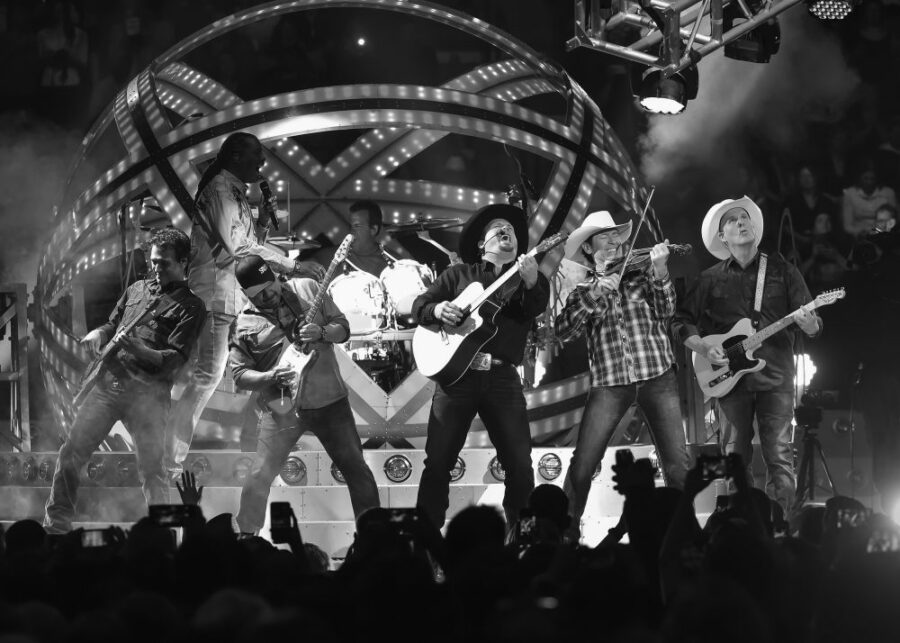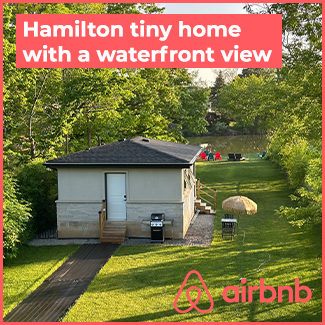
The Musical City
- Jeff Martin
- 05 Jul 2016
A conversation with Hamilton’s music strategy team
Hamilton’s music strategy was created in 2014 after extensive consultation with the city’s music community and several public forums. An advisory team was assembled – the Music Strategy Implementation Team – representing a cross-section of Hamilton’s music community. At the strategy’s core are three groups: musicians, the music industry (i.e., live music venues, music shops, record stores, etc.), and music fans and supporters.

In its first two years, the team has identified several key issues, challenges, and opportunities to enhance and strengthen Hamilton’s music scene and music community. It has completed a survey of local live music venues, facilitated the start-up of a Hamilton music association, and is developing a marketing strategy to help brand Hamilton a “music city.” urbanicity Magazine (UM) spoke with four members of the MSIT about live music in Hamilton: Lou Molinaro (This Ain’t Hollywood), Scott Warren (CORE Entertainment), Madeline Wilson (Front Room Entertainment), and Jackie Norton (Hamilton Music + Film Office).
UM: What are some of the challenges for the music strategy and for live music in Hamilton?
Lou Molinaro: For live venue clubs, the proximity to Toronto remains one of our biggest challenges, particularly [because of] radius clauses. They restrict bands and artists from booking into clubs within a predetermined distance. And now it’s getting worse. Agents are getting into a routine, booking bands into Montréal and Toronto and not offering Hamilton a show because of Toronto’s radius clauses.
Scott Warren: Bringing acts to Hamilton is still a huge challenge. Toronto is the fourth largest city in North America. It’s a sort of “marquee” city that bands want play. The music industry is a lot of ego – it’s one thing to say that we played Hamilton, compared to Toronto. The mindset is still out there. It will take time to correct that view, if we can correct it at all.
For the five Garth Brooks shows in May, Garth was specifically involved in booking Hamilton. It’s quite unusual when the artist gets involved to that degree. He simply wanted to play Hamilton. They have great memories of being in this city. Garth loves Hamilton. He feels the people here are the most responsive crowd he’s played to.
It’s the same thing with the Paul McCartney date. You get that level of artist and it sells out in minutes. Musicians realize they can play Hamilton and don’t necessarily have to play Toronto. We use those sell-outs to better position Hamilton in securing additional acts. It definitely elevates Hamilton’s presence internationally.

Jackie Norton: The music strategy may be a city initiative, but it’s made up of volunteers from our music community. One of our challenges is to ensure the local music industry feels a sense of ownership and takes it on. We can’t do everything, but we can encourage and help a lot of things happen. Our big challenge is finding more money to implement the strategy priorities. Once that happens, we’ll be able to stay in step with other cities.
Madeline Wilson: Another challenge is people who might be cynical about the city’s music strategy and its attempt to help out. Despite what people think, the strategy team members are all people who have a big role in different areas of the city’s music scene and industry. At the end of the day, we’re all people who love music, are involved in music across the city, and want our musicians and music community to grow and prosper.
UM: How can the music strategy and music office help Hamilton’s music scene?
JN: The music office can help support the smaller live venues in this city [by], for example, reviewing bylaws that affect them, helping them to form an association, [or] finding ways to promote their shows. Sustaining the people who are bringing us music and making music is critical. We also have to continue to engage young and up-and- coming musicians of all genres.
SW: Move Toronto further east for a start. Seriously, it needs to help our local live music venues work with the agencies. Educating them about our large catchment area: Hamilton, Burlington, Niagara Falls, St. Catharines, Brant- ford, Guelph. We can pull from a large geographical population base. We don’t need Toronto. We need to tell agents the Hamilton story – the demographics of this market, its location to large population outside of Toronto’s reach. In their minds, we’re 40 miles apart so Hamiltonians can go to Toronto. It’s really an economic development issue.
LM: For me and other live venue owners, a vital part of the strategy is: “How do we get these venues full of people?” We need all the city’s venues – clubs, coffeehouses, FirstOntario Centre, Hamilton Place – to nurture a healthy music scene. So we’re asking ourselves, “How do we inform people of who’s playing?” “How do we get people across the city to take the music scene a little more seriously and pay a little more attention to us?”
MW: We want to connect with Hamilton musicians and connect them to resources. For example, connecting with SOCAN if they need to learn how to register and begin collecting royalties. Connecting them to services that will help support them. A huge component of being an artist or musician is being able to understand your own business. Other issues like affordable housing, or paying musicians fairly whether they’re an HPO member or a new indie artist, may be beyond the music strategy’s scope, but they are on our radar. They’re just as important.

UM: How does Hamilton compare with other cities embracing an official music strategy?
JN: We’re in step with other Ontario cities focusing on music: London, Kitchener, Ottawa, Sudbury, and Toronto. We’re working toward similar goals for our respective cities and sharing information. Ontario’s music economy, although much of it is centred in Toronto, is in all of those secondary markets and Hamilton is a key player, if not the most important player.
LM: Being close to Toronto is a double-edged sword. To our advantage, we’ve been able to attract a lot of musicians, engineers, and producers to Hamilton to raise their families, spend their money, write and record their songs, and be part of the community. The atmosphere is collaborative and welcoming. And it validates the city’s music culture and community. We have more studios now. Musicians are coming to Hamilton to record because we know what we’re doing. The people here are so passionate about music and their craft. It’s also the Hamilton attitude – everything that seemed to be negative about the “grit” of the city is now positive — the grit is part of our personality and DNA.
MW: It’s the attitude and authenticity. People come to Hamilton to legitimize themselves as musicians. Rarely do you see people leave Hamilton for Toronto and call them- selves Torontonians, or take on the Toronto psyche. People may leave Hamilton, but they come back and are proud of their roots. You can go anywhere in Canada and say you’re a musician from Hamilton and you have credibility. You own that history. It’s very well recognized.
UM: Established music cities like Austin, Nashville, Seattle, Portland, Glasgow, and Melbourne do a lot of marketing to support their respective music scenes and industry. What is Hamilton doing?
LM: The city has to put a far greater amount of resources behind the music strategy – budget, staff and overall effort – if it truly believes Hamilton has the potential of becoming an internationally recognized music city. We need to expose and raise awareness of our music heritage. There’s no other city that deserves this more than Hamilton. We want to engage with Hamiltonians who haven’t been out to experience live music and those who love music but might not be aware of what’s available.
SW: Aesthetically, we can make the city feel much more alive with and about music. When you come into Hamil- ton, there’s no music “presence” unless you know the history of music in this city. What tells you it’s a music city? Right now, nothing really. So there’s a real opportunity to brand the city so people can see and feel the music, and pay homage to and showcase our own celebrities and music heritage – with signage, murals, statues, a walk of fame, music district street banners, busking areas. The bottom line is we need to raise awareness, among Hamiltonians and the rest of the world.
Want to know more?
Download the Hamilton music strategy and backgrounder document: www.hamilton.ca/city-initiatives/strategies-actions/hamilton-music-strategy
Comments 0
There are no comments


Add comment